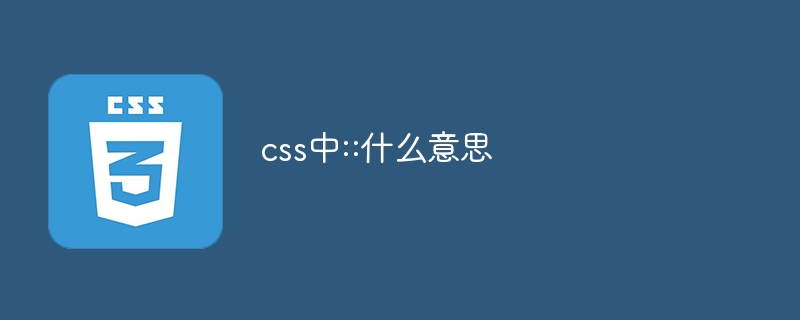CSS3 :default pseudo-class selector can only be used on form elements, indicating the default state of form elements. Next, this article will introduce you to the use of CSS3:default pseudo-class selector. Friends who are interested can follow the editor of Script Home to take a look.
1. CSS3:default pseudo-class Introduction to selectors
CSS3 :default pseudo-class selector can only be used on form elements and represents the form elements in the default state.
For example, a drop-down box may have multiple options. By default, we will make an
<select multiple>
<option>选项1</option>
<option>选项2</option>
<option>选项3</option>
<option selected>选项4</option>
<option>选项5</option>
<option>选项6</option>
</select>
Assume the CSS is as follows:
option:default {
color: red;
}
Then under the Chrome browser, when We select other options. At this time, you can see that option 4 is red. The effect is as follows:

The effect is similar in the Firefox browser:

IE browser does not support it.
Therefore, the mobile terminal can be used with confidence, and the desktop terminal can be used without worrying about IE projects.
2. CSS3:default pseudo-class selector function
CSS3:default pseudo-class selector function is designed to allow users to select When you have a set of data, you still know what the default option is. Otherwise, if there are too many other options, you will not know which one is provided by default. This is an experience enhancement strategy. The effect is not very strong, but it is useful at critical moments.
3. Research on some features of CSS3 :default pseudo-class selector
1. Research 1: Will JS rapid modification have any impact?
The test code is as follows:
:default {
transform: sclae(1.5);
}
<input type="radio" name="city" value="0">
<input type="radio" name="city" value="1" checked>
<input type="radio" name="city" value="2">
<script>
document.querySelectorAll('[type="radio"]')[2].checked = true;
</script>
That is, HTML sets the second radio button to be enlarged 1.5 times, and JS immediately sets the second radio button instantly. After selecting 3 radio boxes, I found that even if it is very fast, even if there is almost no delay in the JS modification, the rendering of the :default pseudo-class selector is still not affected.

Therefore, the answer to this question is no impact.
2. Study 2:
For example:
option:default {
color: red;
}
<select name="city">
<option value="-1">请选择</option>
<option value="1">北京</option>
<option value="2">上海</option>
<option value="3">深圳</option>
<option value="4">广州</option>
<option value="5">厦门</option>
</select>
The first
Therefore, the answer to this question is no response.
4. Practical application of CSS3 :default pseudo-class selector
Although the :default selector is used to mark the default state, avoid Choose obfuscation. But in fact, in my opinion, the more practical value should be the "recommended mark".
Modern web applications are becoming more and more intelligent. Sometimes some operations will intelligently push some choices to the user, in which the recommended settings are set to the checked state by default. In the past, our approach was to additionally output the text "(recommended)" , now with the :default selector, our implementation can become more concise and easier to maintain.
You can click here: :default selector and automatically add recommended words demo
The effect is as follows:

Clicking on other options, the word "recommended" remains solid. In the future, if you want to change the recommended options, you can directly modify the checked attribute of the input, making maintenance easier.
The relevant CSS and HTML codes are as follows:
input:default + label::after {
content: '(推荐)';
}
<p><input type="radio" name="pay" id="pay0"> <label for="pay0">支付宝</label></p>
<p><input type="radio" name="pay" id="pay1" checked> <label for="pay1">微信</label></p>
<p><input type="radio" name="pay" id="pay2"> <label for="pay2">银行卡</label></p>
The above is the entire content of this article, I hope it will be helpful to everyone’s learning, more Please pay attention to the PHP Chinese website for related content!
Related recommendations:
Analysis on css3 UI element status pseudo-class selector
Use icon
fonts to assist CSS in processing images
The above is the detailed content of Analysis of CSS3 default pseudo-class selector. For more information, please follow other related articles on the PHP Chinese website!
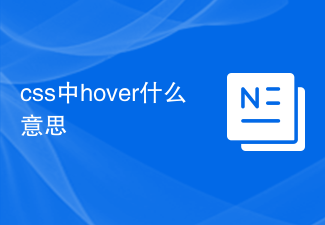 css中hover什么意思Feb 22, 2024 pm 01:24 PM
css中hover什么意思Feb 22, 2024 pm 01:24 PMCSS中的:hover是一种伪类选择器,用于在用户悬停在特定元素上时,应用特定的样式。当鼠标悬停在元素上时,可以通过:hover为其添加不同的样式,从而增强用户体验和交互效果。本文将详细讨论:hover的含义以及给出具体的代码示例。首先,让我们了解一下CSS中:hover的基本用法。在CSS中,可以通过选择器来选中要应用:hover效果的元素,并在其后面加上
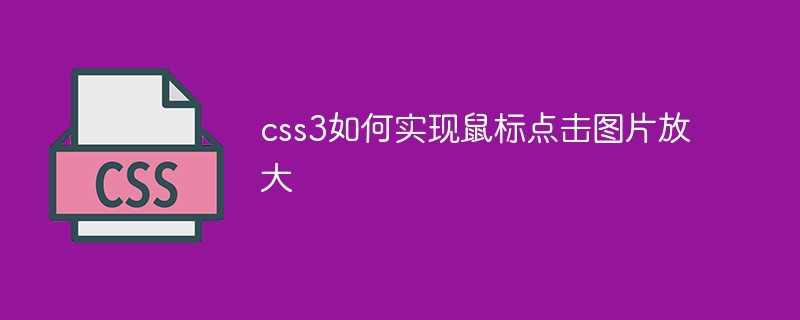 css3如何实现鼠标点击图片放大Apr 25, 2022 pm 04:52 PM
css3如何实现鼠标点击图片放大Apr 25, 2022 pm 04:52 PM实现方法:1、使用“:active”选择器选中鼠标点击图片的状态;2、使用transform属性和scale()函数实现图片放大效果,语法“img:active {transform: scale(x轴放大倍数,y轴放大倍数);}”。
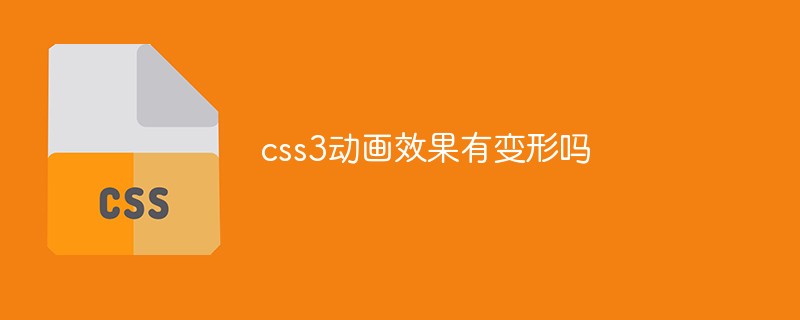 css3动画效果有变形吗Apr 28, 2022 pm 02:20 PM
css3动画效果有变形吗Apr 28, 2022 pm 02:20 PMcss3中的动画效果有变形;可以利用“animation:动画属性 @keyframes ..{..{transform:变形属性}}”实现变形动画效果,animation属性用于设置动画样式,transform属性用于设置变形样式。
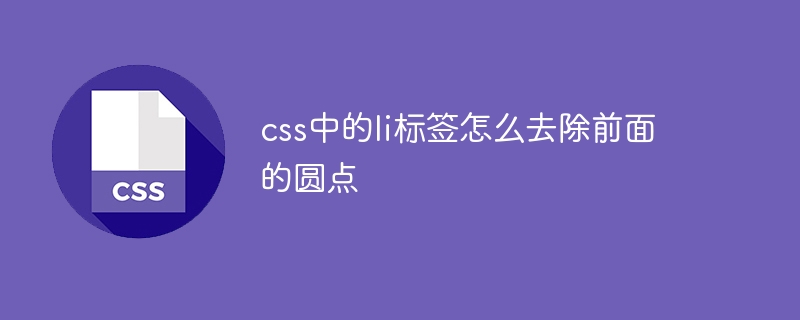 css中的li标签怎么去除前面的圆点Apr 28, 2024 pm 12:36 PM
css中的li标签怎么去除前面的圆点Apr 28, 2024 pm 12:36 PMCSS中去除li标签圆点的方法有两种:1.使用"list-style-type: none;"样式;2.使用透明图片和"list-style-image: url("transparent.png");"样式。两种方法都能删除所有li标签的圆点,如果您只想删除某些li标签的圆点,可以使用伪类选择器。
 如何使用:nth-child(-n+5)伪类选择器选择位置小于等于5的子元素的CSS样式Nov 20, 2023 am 11:52 AM
如何使用:nth-child(-n+5)伪类选择器选择位置小于等于5的子元素的CSS样式Nov 20, 2023 am 11:52 AM如何使用:nth-child(-n+5)伪类选择器选择位置小于等于5的子元素的CSS样式在CSS中,伪类选择器是一种强大的工具,可以通过特定的选择方式来选取HTML文档中的某些元素。其中,:nth-child()是一种常用的伪类选择器,可以选择特定位置的子元素。:nth-child(n)可以匹配HTML中的第n个子元素,而:nth-child(-n)可以匹配
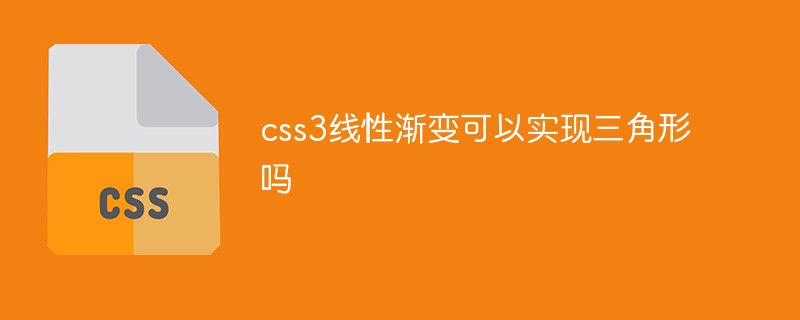 css3线性渐变可以实现三角形吗Apr 25, 2022 pm 02:47 PM
css3线性渐变可以实现三角形吗Apr 25, 2022 pm 02:47 PMcss3线性渐变可以实现三角形;只需创建一个45度的线性渐变,设置渐变色为两种固定颜色,一个是三角形的颜色,另一个为透明色即可,语法“linear-gradient(45deg,颜色值,颜色值 50%,透明色 50%,透明色 100%)”。
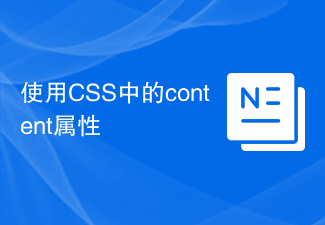 使用CSS中的content属性Feb 19, 2024 am 10:56 AM
使用CSS中的content属性Feb 19, 2024 am 10:56 AMCSS中content属性的用法CSS中的content属性是一个非常有用的属性,它是用来在伪类中插入额外的内容的。content属性一般只能在伪类选择器(如::before和::after)中使用,它可以用来插入文本或者图片等内容。我们可以通过content属性实现一些非常炫酷的效果。下面是content属性的一些用法以及具体的代码示例:插入文本内容通过


Hot AI Tools

Undresser.AI Undress
AI-powered app for creating realistic nude photos

AI Clothes Remover
Online AI tool for removing clothes from photos.

Undress AI Tool
Undress images for free

Clothoff.io
AI clothes remover

AI Hentai Generator
Generate AI Hentai for free.

Hot Article

Hot Tools

ZendStudio 13.5.1 Mac
Powerful PHP integrated development environment

SAP NetWeaver Server Adapter for Eclipse
Integrate Eclipse with SAP NetWeaver application server.

EditPlus Chinese cracked version
Small size, syntax highlighting, does not support code prompt function

DVWA
Damn Vulnerable Web App (DVWA) is a PHP/MySQL web application that is very vulnerable. Its main goals are to be an aid for security professionals to test their skills and tools in a legal environment, to help web developers better understand the process of securing web applications, and to help teachers/students teach/learn in a classroom environment Web application security. The goal of DVWA is to practice some of the most common web vulnerabilities through a simple and straightforward interface, with varying degrees of difficulty. Please note that this software

Atom editor mac version download
The most popular open source editor





